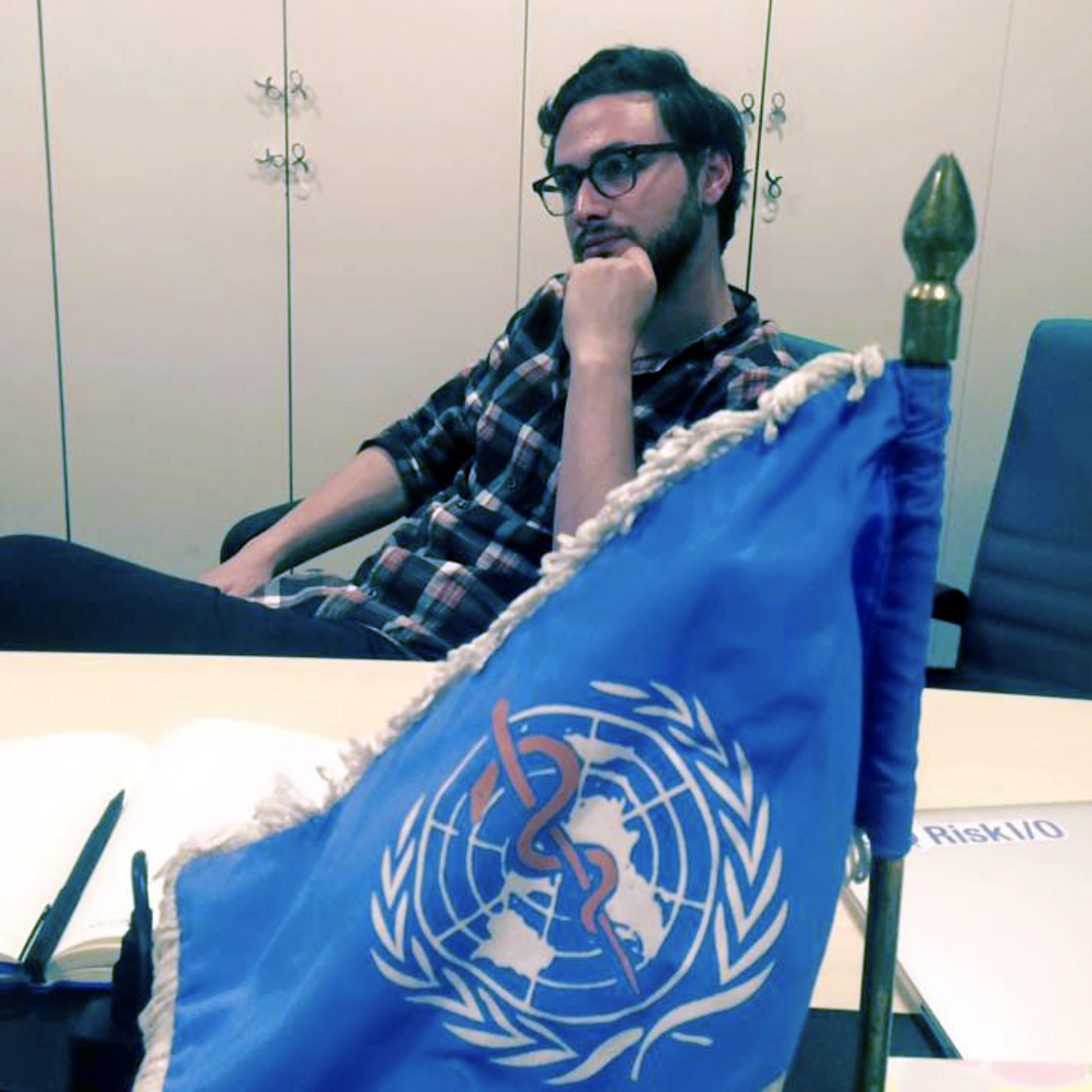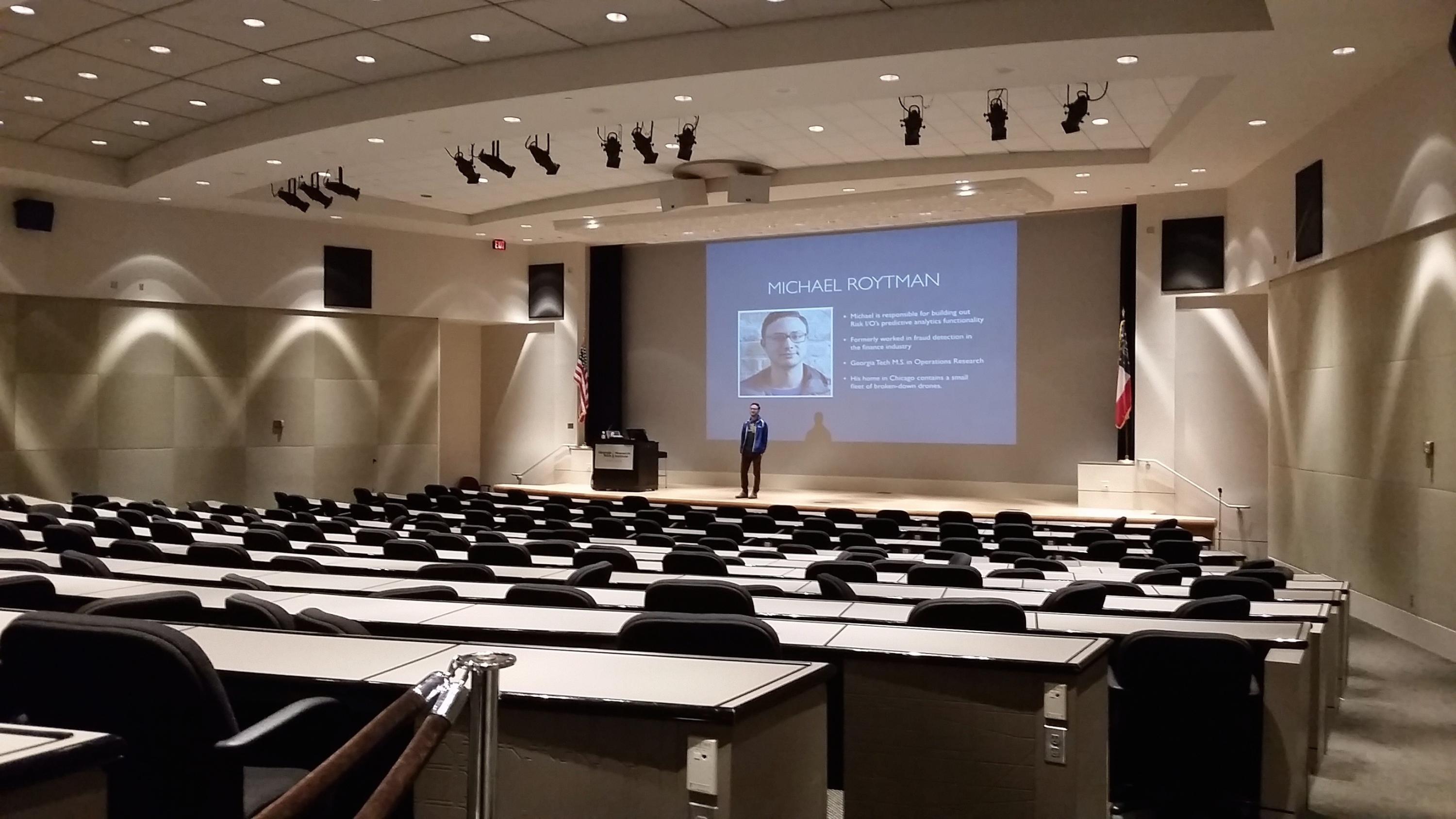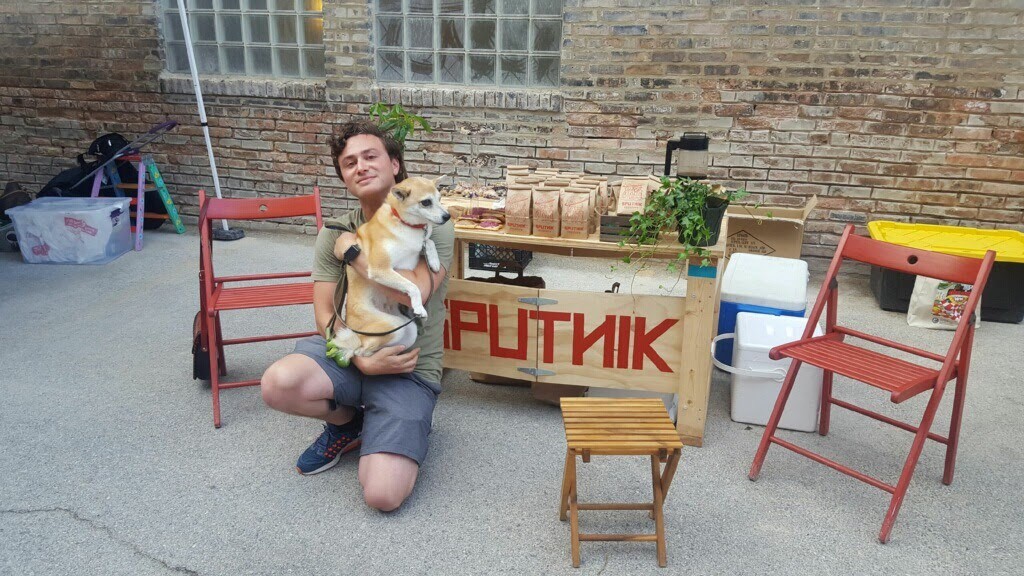Sit down for a chat with Michael Roytman, and you’re guaranteed to have a wide-ranging and interesting conversation that may take unexpected tangents. (As an example, his LinkedIn profile says that he’s an expert at “herding cats.”)
Roytman was born in the waning days of the German Democratic Republic (East Germany), where his father worked as a civil engineer for the Russian government. As a youngster, he lived in Ukraine and spent summers with his grandparents in St. Petersburg, Russia.
During one of these visits, his grandfather – a professor of geophysics and geology – gave him a computer: an IBM 5160 with yellow text and a brown screen. In order to play games on the computer, Roytman had to learn how to write the command lines. This, he said in a recent interview, “was the genesis of everything.”
Eventually Roytman’s family immigrated to the U.S., where he earned his bachelor’s degree in industrial engineering from the University of Illinois-Urbana-Champaign in 2010. While researching IE graduate programs, he heard about Georgia Tech and the Stewart School of Industrial and Systems Engineering’s No. 1 ranking. When he visited the Stewart School as an applicant, he met some of ISyE’s “legends”: John Hunter Chair and Professor Arkadi Nemirovski; Professor Alexander Shapiro; and Professor and Stewart Faculty Fellow Craig Tovey – who ended up being his advisor. These encounters made Roytman determined to attend ISyE.
While a Ph.D. student, Roytman took his first step into entrepreneurship by developing TruckSpotting, an app that shows the location of food trucks in Atlanta. Although TruckSpotting was a fun project – Roytman said he “got a lot of free food in the process” – he came to realize that it was not financially scalable and sold the app, which is still in use today.
After graduating from ISyE in 2012 with a master’s degree in operations research, Roytman took a position with Chicago-based firm Kenna Security, a start-up company that offers a customer-facing vulnerability and risk intelligence platform. He is currently Kenna’s chief data scientist. The Kenna Security Platform enables organizations to work cross-functionally to determine and remediate cyber risks. Kenna tracks and predicts real-world exploitations, focusing security teams on what matters most. Roytman is responsible for building out the core analytic and predictive algorithms – and has earned four patents in the process.
In the midst of this burgeoning data science career, Roytman also has spoken at Georgia Tech’s Expert Jackets, at conferences on cybersecurity, and published research with Dan Geer, the chief information security officer at In-Q-Tel, a not-for-profit venture capital firm that invests in technologies supporting the CIA. He’s on the board of the Society of Information Risk Analysts, as well as the advisory board of CryptoMove, a two-year-old Silicon Valley start-up. He also began developing the Dharma.ai, which enables organizations to collect, understand, and use the ground-level data that informs their activities.
Dharma specifically began three years ago with a project for Médecins Sans Frontières (MSF), where Roytman’s experience with TruckSpotting came in handy. Together with Jesse Berns, a friend who was working as an epidemiologist for MSF in Iraq, Roytman pieced together an iPhone app that tracked data in refugee camps.
Eventually, Dharma.ai further evolved to enable an organization’s staff at headquarters and managers in the field to monitor activities in real time without Wi-Fi or cell phone service, which isn’t always available. Real-time information is presented with cutting-edge visualizations in the Dharma web and mobile applications. These data are available for export to Excel, or to statistical tools for deeper analysis, and can be piped into a wide range of data warehouses for sophisticated online analytics.
Currently, some significant humanitarian organizations – the World Health Organization, MSF, Habitat for Humanity, and Save the Children – use Dharma. The company just completed its Series A funding with $10 million coming from The Rise Fund, and was implemented in Texas after Hurricane Harvey.
Dharma is also the reason Roytman was named to Forbes magazine’s “Thirty Under Thirty” in 2017.
When asked what has changed for him since receiving that recognition, Roytman said, “It’s a stamp of approval. It’s not like you don’t have to do your work the next day. That said, Forbes does a great job of networking the 30 Under 30 winners. I get to connect with previous winners who might know about things I don’t and ask for their input. It was like earning an MBA overnight.”
With everything that Roytman has going on, it’s no surprise that he also has a side hustle that he talks about enthusiastically: coffee.
As Roytman tells it, he and some friends would get together on occasional Saturdays in Roytman’s apartment and roast green coffee beans in the oven, which would then be distributed to family and friends. Eventually, they were able to purchase a $30,000 full-scale industrial coffee roaster for the bargain price of $6,000, which – until recently – they operated out of the basement of an apartment building Roytman owns.
“We realized that coffee is getting increasingly more expensive and more complex,” Roytman explained. “There are companies selling their coffee for $25 per pound, but the reality is that 99 percent of consumers don’t have the machinery to extract $25 worth of value out of those beans.”
As an alternative to the current coffee trends, Roytman and three friends opened a coffee shop in Back of the Yards, a blue-collar working neighborhood in Chicago that Upton Sinclair wrote about in The Jungle, and started selling half-pound bags of their coffee online for $6.
“Everything is hooked up to computers, so we roast coffee as an engineer would, rather than as an artisan would, which is actually the correct way to do it,” Roytman said. “Ironically, the software for roasting like an engineer is called Artisan. It qualitatively controls the roasting process, so the result is consistent coffee, which is necessary if you’re going to scale up to opening a coffee shop.”
They named their coffee company Sputnik Roasters – a nod to the fact that Roytman and two of his fellow roaster friends are Soviet refugees. In addition, Roytman mentioned, “It’s a reference to coffee for the masses, the proletariat if you will. Back of the Yards is a craft coffee desert, and demand is high. There are union workers going to work at five in the morning, who want to drink a cup of coffee, but their options are 7-11 or Starbucks. We want to prove that it’s possible to have good sustainable coffee shops the way gentrified neighborhoods have in communities those people don’t typically approach.”
When asked if he would ever leave cybersecurity to focus on coffee full-time, Roytman laughed. “I would be bored if I left either one, honestly. I think cybersecurity is the most important issue of our generation. We built highways in the 60s that allowed our economy to grow; now we don’t live in the physical world, we live in the digital world, and there are no highways there. There’s no infrastructure to protect traffic and to protect consumers. Cybersecurity is largely an afterthought today. We’re building that infrastructure to make sure business can be done safely.”
For More Information Contact
Shelley Wunder-Smith
Stewart School of Industrial and Systems Engineering
404.385.4745


